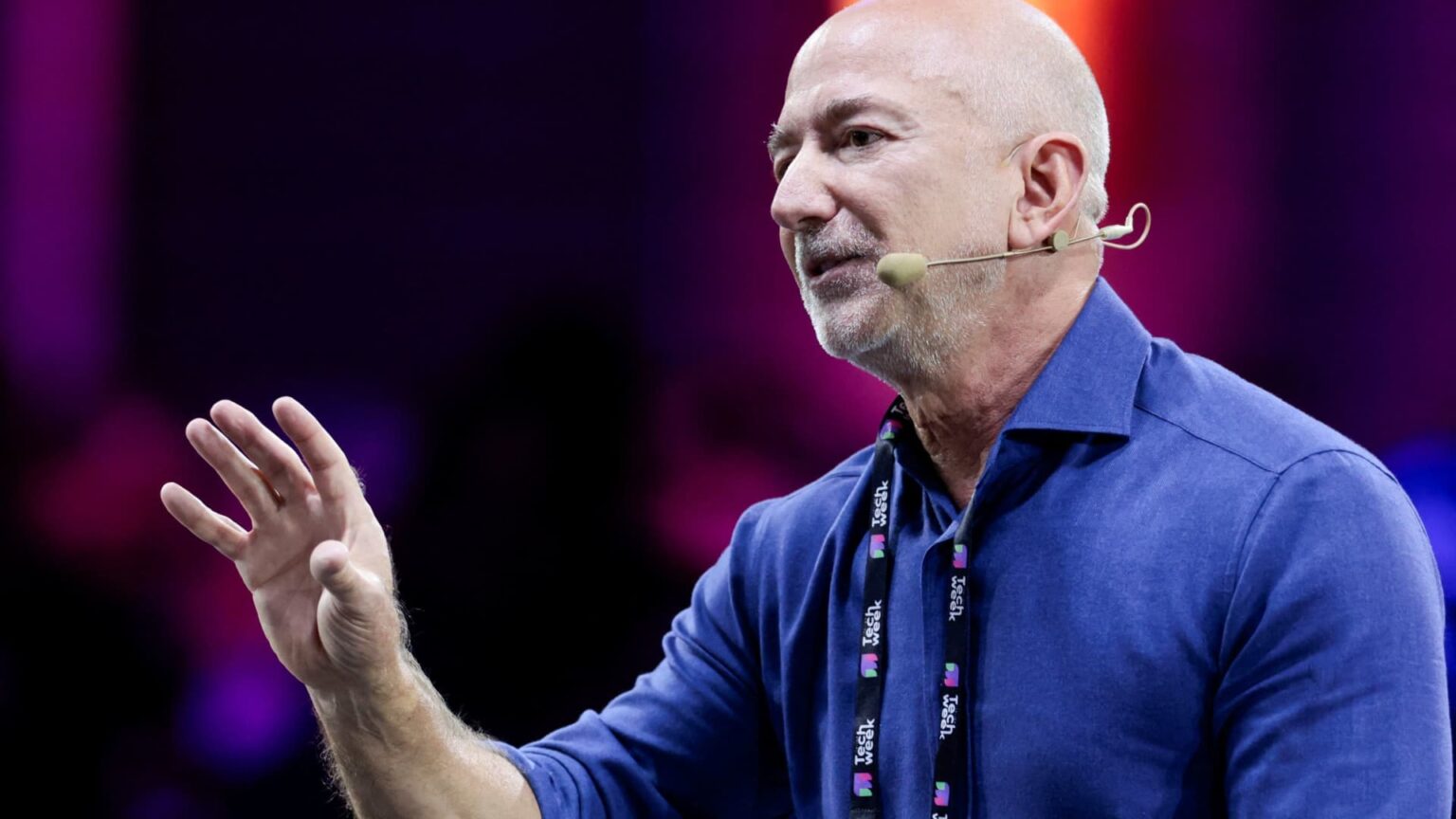At the recent Italian Tech Week held in Turin, Italy, Amazon founder Jeff Bezos addressed the current state of artificial intelligence (AI), referring to it as an “industrial bubble.” While he acknowledged that this trend could pose risks, he emphasized the reality and potential benefits of AI technology. Bezos also highlighted the excitement surrounding AI investments, noting that the market is rife with both promising and questionable ideas. This article explores his insights and the broader implications of current AI market dynamics.
| Article Subheadings |
|---|
| 1) Understanding the AI Industrial Bubble |
| 2) Bezos on AI’s Broad Impact |
| 3) The Bubble Phenomenon in Historical Context |
| 4) Warnings from Industry Leaders |
| 5) Future Prospects of AI Technology |
Understanding the AI Industrial Bubble
At the heart of Bezos’s remarks at Italian Tech Week is the characterization of the current AI landscape as potentially a bubble, much like those seen in historical financial markets. The term “bubble” typically describes a market phenomenon where assets inflate rapidly in value, often disconnected from their intrinsic worth. This kind of disconnection can lead to unsustainable market conditions, as noted by Bezos when he remarked, “when [stock prices] happen, they are disconnected from the fundamentals of a business.” He pointed out that excitement around AI today could lead to vague decision-making among investors, who may struggle to differentiate between worthwhile investments and those destined to fail.
Bezos on AI’s Broad Impact
While acknowledging the speculative nature of the current investment environment for AI, Bezos articulated a viewpoint of optimism surrounding the technology’s transformative potential. “AI is real, and it is going to change every industry,” he asserted. His comments reflect a belief that despite current overvaluation risks, the underlying technology of AI possesses genuine capabilities that will spur innovation across various sectors. Bezos illustrated his point by referencing a six-person startup that had received billions in funding, noting that this was indicative of the unusual phenomena happening in today’s tech industry. Such high-stakes investments raise questions about sustainability, yet Bezos remains firm in his conviction regarding AI’s positive societal impact.
The Bubble Phenomenon in Historical Context
Bezos’s observations of the AI industry mirror historical patterns seen during previous financial bubbles. He compared the current environment to the biotech and pharmaceutical bubble of the 1990s, where various companies, despite some eventually failing, contributed to significant medical breakthroughs. This idea suggests that while many companies may not survive, the innovations that do succeed can yield substantial benefits for society over time. “When the dust settles, and you see who are the winners, societies benefit from those inventions,” Bezos explained. His emphasis on the constructive outcomes of bubbles serves as a cautionary reminder of the chaotic nature of investment trends, but also the potential for valuable advancements.
Warnings from Industry Leaders
Bezos’s insights are echoed by a number of prominent figures in the technology and finance sectors, each expressing concern over the inflated valuations in the AI market. For instance, OpenAI CEO Sam Altman indicated in August that the AI sector was experiencing a bubble, leading many investors to reconsider the fundamentals behind their funding choices. Moreover, David Solomon, CEO of Goldman Sachs, shared caution about current stock market levels fueled by the AI hype. He noted, “There will be a reset at some point,” reflecting a widespread acknowledgment that the frenzy over AI technologies may not be sustainable. These sentiments underscore the importance of vigilance among investors and stakeholders in the AI ecosystem.
Future Prospects of AI Technology
Despite inherent risks, the future of AI technology remains promising according to industry leaders including Bezos. He pointed out that the significant investment pouring into AI startups, regardless of their operational scale, signals an eagerness and belief in the technology’s potential. The transformative effects of AI are laid out clearly as industries across the spectrum—from healthcare to automotive—begin to integrate advanced algorithms and machine learning capabilities. With a clear vision for how AI could revolutionize processes and enhance efficiencies, Bezos maintains that AI’s ultimate benefits will indeed be “gigantic,” far outweighing the current speculative uncertainties.
| No. | Key Points |
|---|---|
| 1 | Jeff Bezos characterized the current state of AI as an “industrial bubble.” |
| 2 | AI technology has real potential to transform industries, according to Bezos. |
| 3 | Historical patterns of financial bubbles can inform our understanding of the current AI landscape. |
| 4 | Industry leaders, including Sam Altman, caution about inflated valuations in the AI sector. |
| 5 | Despite risks, the future trajectory of AI remains upbeat and optimistic. |
Summary
In his remarks at Italian Tech Week, Jeff Bezos highlighted the current AI landscape as an “industrial bubble” while asserting the technology’s substantial potential benefits. Amid cautionary notes from other industry leaders, the discussion underscores both the excitement and the risks involved in AI investment. By drawing parallels to historical market patterns, Bezos offers a nuanced view that encourages both innovation and due diligence in navigating this burgeoning field.
Frequently Asked Questions
Question: What does an “industrial bubble” refer to in the context of AI?
An “industrial bubble” refers to a market condition where investments in a particular sector, like AI, inflate beyond their basic economic fundamentals, raising concerns about sustainability.
Question: Why do industry leaders believe AI has the potential to be transformative?
Industry leaders believe AI can revolutionize efficiency and processes across various sectors, offering substantial benefits despite current speculative investment risks.
Question: What historical examples are relevant to the discussion of AI bubbles?
The biotech and pharmaceutical bubble of the 1990s is often cited as a historical example that, despite failures, ultimately led to significant medical advancements, suggesting a similar trajectory for AI.


